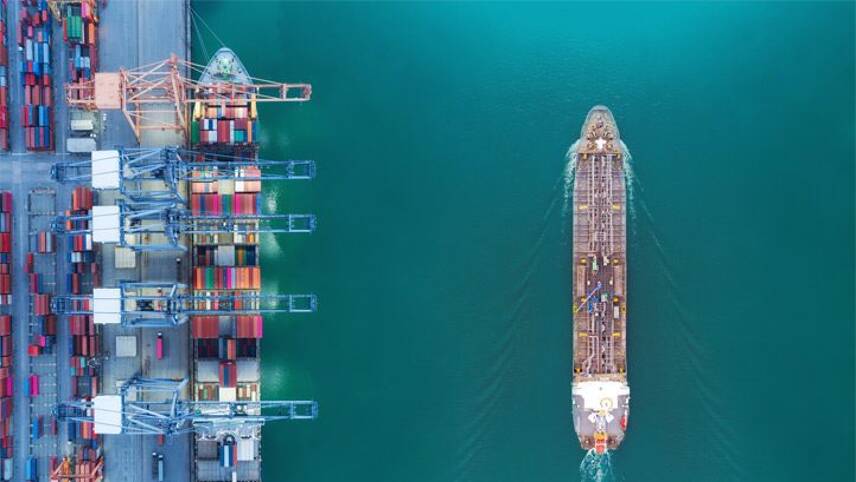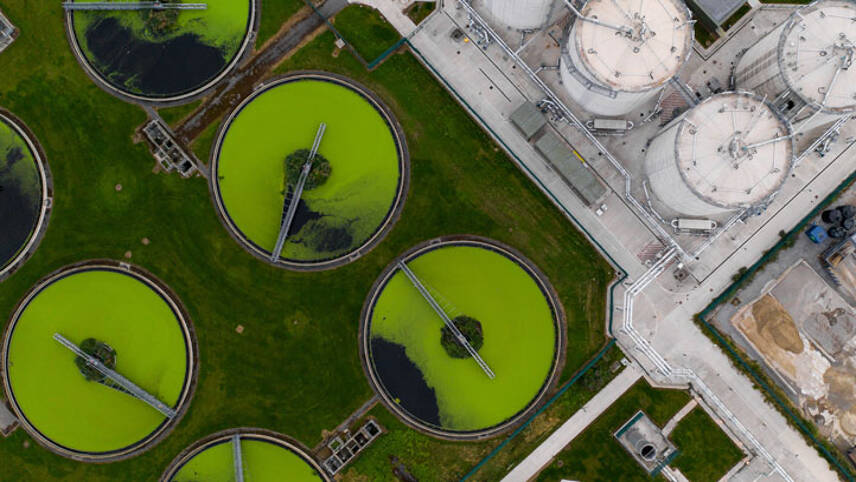WOBO thanks edie for a sample of their latest activity news.

‘Missed the boat’: IMO criticised over revised decarbonisation strategy
At the 80th meeting of the Marine Environment Protection Committee (MEPC 80), the Member States officially endorsed the 2023 IMO Strategy on Reduction of GHG Emissions from Ships.
The new strategy has set targets for a minimum 40% reduction in CO2 emissions per transport work in international shipping by 2030, and a minimum 70% reduction, with an aspiration of 80%, in total annual GHG emissions from international shipping by 2040.
IMO secretary-general Kitack Lim said: “The adoption of the 2023 IMO Greenhouse Gas Strategy is a monumental development for IMO and opens a new chapter towards maritime decarbonisation. At the same time, it is not the end goal, it is in many ways a starting point for the work that needs to intensify even more over the years and decades ahead of us.”
Currently, the shipping industry accounts for 3% of global greenhouse gas (GHG) emissions, and projections indicate that without intervention, these emissions could more than double by 2050.

Skills shortage to hinder climate investment plans across EU
The European Investment Bank (EIB) has released the findings of the 2022 Municipality Survey. Covering 744 municipalities across the European Union (EU), the survey gathers the concerns and priorities of places that account for almost half of public investment across the bloc.
The survey found that city planners are concerned about a lack of funding, regulatory processes bogged down by red tape and a shortage of skilled labour to enable green and digital transitions.
The survey found that 60% of municipalities consider their investments in climate mitigation and adaptation infrastructure to be insufficient over a three-year period. As a result, 60% plan to boost investments in these areas over the next three years.
The survey also found a disparity when it came to developed and less developed regions across the EU. More developed regions plan to invest more in adaptation and mitigation compared to those in less developed regions.

Tata Steel and Airbus among big businesses launching Green Hydrogen Alliance
The GHA will act as an independent business group consisting of members across key sectors and will explore how low-carbon hydrogen can be used to decarbonise areas of the economy including aviation, road haulage and power.
Business members include Airbus, Air Products, Associated British Ports, London City Airport, Tata Steel, World Kinect; as well as an advisory board including Cranfield University and the Thames Estuary Growth Board.
The GHA aims to ensure that the UK is globally competitive in the hydrogen market and that the nation does not fall behind the likes of Germany and Netherlands, which have both set out hydrogen strategies. The GHA will also explore the economic impact that green hydrogen development could have on specific regions across the UK.
A spokesperson for the GHA said: “Green hydrogen could provide a secure supply of green energy while also helping the UK in its efforts to decarbonise. We look forward to working with policymakers to ensure the country can fulfil its potential in this exciting developing technology.”

Report: Energy upgrades for homes could deliver £135bn boon for UK
The BRE report highlights that by improving homes that fall below the minimum standard for hazards to an Energy Performance Certificate (EPC) band C within 30 years, a potential reduction of 97 million tonnes of CO2 emissions could be achieved.
BRE’s chief executive officer Gillian Charlesworth said: “Our analysis is a clear signal to policymakers that investing in the health and safety of England’s poor housing will deliver significant, long-term economic and societal benefits.
“Improving poor housing has huge implications for the life chances of the families who live in those homes, and benefits to society as a whole. But our research shows there is much more than a moral case for tackling unsafe homes. There is also a powerful economic argument for England and the UK to deliver the improvements needed, through targeted and timely programmes of work to reap the financial payback.”
The latest data from the English Housing Survey reveals that there are roughly 65,000 damp and mouldy homes, which are considered Category 1 health and safety (HHSRS) hazards. The required remedial works for these homes amount to £250m.

Mini hydropower turbines and ‘splash-free’ pavements: Ofwat backs 20 environmental innovations
Ofwat has today (4 July) announced 20 finalists for its next phase of the £4m Water Discovery Challenge – a competition supporting organisations outside of the water sector that are producing innovations that could be used within it, to solve its most pressing challenges.
These challenges include climate adaptation; decarbonisation; improving efficiencies and – of course – reducing pollution.
One project addressing multiple challenges is Kiacrete. Based out of Imperial College London, Kiacrete has developed permeable paving slabs that enable rainwater to drip through into plastic collection systems underneath. This enables the water to be reused, while also reducing flooding risks.
Ofwat is also supporting The Fish Friendly Hydropower Company in developing and rolling out small-scale hydropower turbines which could generate electricity from water flowing through pipes; plus innovators who are working to transform contaminated water into energy while also cleaning it ready for reuse.
